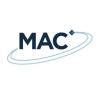Research Associate
Glasgow, SCT, GB, United Kingdom
Job Description
Salary range:
37,694 - 46,049 per annumFTE:
1 FTE (35 hours)Term:
Fixed (19 months)Closing Date:
12 September 2025This is a full time post-doctoral research associate position (19 months) working on developing a geochemical tool for mine water clean-up (critical minerals) and valorisation. This NERC funded project led by Dr Andrea Hamilton develops innovative experimental/laboratory based research on using a calcium silicate mineral 'sponge' to sequester dissolved transition metals, particularly cobalt, copper and nickel from solution. The project combines a) analytical (aqueous) chemistry using ICP-OES, b) solid-state characterisation (X-ray diffraction, X-ray fluorescence, electron microscopy etc) and metal recovery from the 'sponge' post sequestration with c) developing and building a filtration unit around calcium silicate 'sponges' for deployment during field trials in a nickel mine in Canada.
To be considered for this role you should have a PhD (or equivalent) in materials characterisation/geochemistry/chemical and process engineering/hydro-metallurgy or related fields. This position would suit someone who is interested in critical mineral recovery and developing a water filtration tool around calcium silicate based filters for treating mining wastewater.
Cobalt (Co), nickel (Ni) and copper (Cu) are critical minerals vital for the clean energy transition. The World Bank projects that we will need over 3 billion tonnes of minerals and metals to deploy the renewable energy and storage required to achieve a climate target of 2C. The International Energy Agency predicts that there will be a 16% shortfall in supply of Co and a 31% shortfall in supply of Cu by 2035. Mining operates with > 50% production losses and generates severe toxic discharges. There is an urgent and worldwide need to clean up water affected by current and legacy metal mines. The official government cost estimates for cleaning up active and abandoned mine waste sites in Canada surpass $10 billion. Globally, at least 16% of the world's land-based critical mineral mines, deposits and districts are located in areas already facing high levels of water stress. Without proper management, critical minerals mining can be extremely water intensive and polluting. This outlines the acute need for new technology to remediate mine water and reduce reliance on primary mineral sources.
For informal enquiries, please contact Dr Andrea Hamilton, Senior Lecturer - andrea.hamilton@strath.ac.uk
Beware of fraud agents! do not pay money to get a job
MNCJobs.co.uk will not be responsible for any payment made to a third-party. All Terms of Use are applicable.
Job Detail
-
Job IdJD3581041
-
IndustryNot mentioned
-
Total Positions1
-
Job Type:Full Time
-
Salary:Not mentioned
-
Employment StatusFull Time
-
Job LocationGlasgow, SCT, GB, United Kingdom
-
EducationNot mentioned



